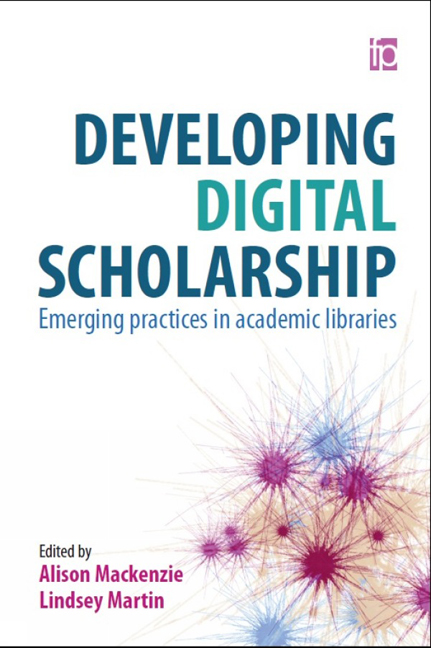Book contents
- Frontmatter
- Contents
- List of figures, tables and case studies
- Editors and contributors
- Introduction
- PART 1 A review of the landscape
- PART 2 The agile librarian
- 3 Librarian as partner: in and out of the library
- 4 Novice to expert: developing digitally capable librarians
- 5 Lean in the library: building capacity by realigning staff and resources
- PART 3 Digital spaces and services
- PART 4 Communications and social networking
- Index
4 - Novice to expert: developing digitally capable librarians
from PART 2 - The agile librarian
Published online by Cambridge University Press: 08 June 2018
- Frontmatter
- Contents
- List of figures, tables and case studies
- Editors and contributors
- Introduction
- PART 1 A review of the landscape
- PART 2 The agile librarian
- 3 Librarian as partner: in and out of the library
- 4 Novice to expert: developing digitally capable librarians
- 5 Lean in the library: building capacity by realigning staff and resources
- PART 3 Digital spaces and services
- PART 4 Communications and social networking
- Index
Summary
Introduction
The estate of digital scholarship is expanding, the boundaries of academic librarianship are blurring and researchers and academic staff are widening their engagement in the process of creating and sharing new knowledge through the use of repositories and the adoption of emergent technologies. This has the potential to lead, on the one hand, to a lack of resourcing of support, which has traditionally been delivered by library staff and, on the other hand, to opportunities for forward-thinking professional services to revise their remit and add to their portfolio. The research discussed in this chapter was part of a (UK) nationwide Jisc-funded programme, Developing Digital Literacies (Jisc, 2014). Jisc (Joint Information Systems Committee) is a UK non-profit organization with the vision to ‘make the UK the most digitally advanced education and research nation in the world’ through ‘exploiting fully the possibilities of modern digital empowerment, content and connectivity’ (Jisc, 2016). It operates the national UK's higher education (HE) Janet network, negotiates collectively with vendors and publishers and provides training and advice within the education sector. This chapter explores the context of current conceptions of digital literacies and the growth in digital scholarship, which is defined here as ‘the ability to participate in emerging academic, professional and research practices that depend on digital systems’ (Jisc, 2011). It goes on to discuss issues around skills and competencies of librarians, focusing on how these relate to digital literacies and digital scholarship, particularly in university and research sectors.
Since the millennium, but more particularly over the last ten years, the impact of technology on the provision of library services in UK HE has been profound. Naturally, the increase in access to online resources within colleges and universities has affected budgetary and strategic considerations and the means of service delivery, while, on the front line, library staff now inhabit a complex and ever-changing information environment which would be almost unrecognizable to colleagues from the last century. Alongside these changes within the profession, the context and practices of users of all types have also developed apace. If libraries are to effectively support the needs of scholars, then it is important to recognize the changes in digital scholarship practices, and attendant digital literacies, and to map these to the skills and competencies needed by library staff to support them.
- Type
- Chapter
- Information
- Developing Digital ScholarshipEmerging practices in academic libraries, pp. 61 - 80Publisher: FacetPrint publication year: 2016
- 1
- Cited by



